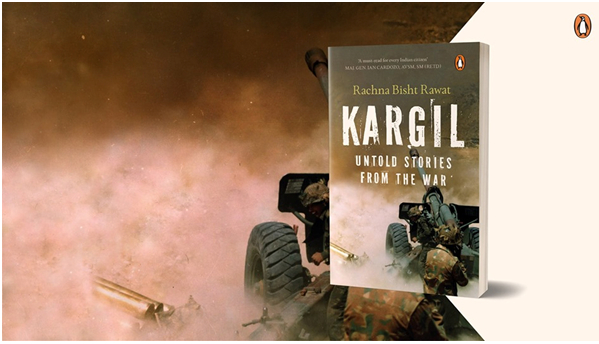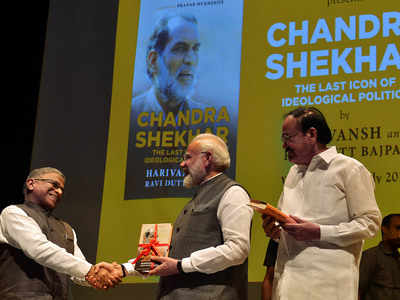Frontlist | 24 books about food recommended by Food Tank this winter
Frontlist | 24 books about food recommended by Food Tank this winteron Jan 15, 2021

Hunker down this winter with 24 books that will spark some serious food for thought. Cookbooks like Hari Pulapaka’s Dreaming in Spice: A Sinfully Vegetarian Odyssey will inspire readers to get creative in the kitchen. And Amy Wu’s From Farm to Incubators will reignite hope through stories of women disruptors in the agtech industry. Whether you’re a lettuce grower, food justice advocate, or avid farmer’s market customer, Food Tank’s 2021 Winter Book List is sure to satisfy your cravings this winter.
1. American Hemp Farmer by Doug Fine
Journalist-turned-hemp-farmer, Doug Fine, takes readers through the fall and rise of hemp, one of humanity’s oldest plant allies. From seed and fiber to the cannabinoid CBD, growers like Fine see the hemp crop is one that is at the forefront of a new, regenerative economy—one that focuses on soil and climate restoration. In American Hemp Farmer, readers get an inside look at Fine’s struggles and victories as an independent, regenerative farmer and entrepreneur.
2. Animal, Vegetable, Junk: A History of Food, from Sustainable to Suicidal by Mark Bittman (forthcoming February 2021)
In Animal, Vegetable, Junk, Mark Bittman looks at the evolution of the industrialized food system. Through chapters on famine, processed diets , and the Green Revolution, he explains how the food system is exacerbating climate change and worsening public health. But he also offers hope, advising readers that there remains an opportunity to reverse course and build a better path forward.
3. As Long as Grass Grows: The indigenous Fight for Environmental Justice, from Colonization to Standing Rock by Dina Gilio-Whitaker
As Long as Grass Grows is a story of Indigenous peoples’ resistance to land incursions and environmental injustice. Indigenous researcher and activist Dina Gilio-Whitaker calls for environmentalists to look to Native peoples’ rich history for wisdom and inspiration in the joint fight for a just and sustainable future.
4. Cultivating Food Justice: Race, Class, and Sustainability by Alison Hope Alkon and Julian Agyeman
Cultivating Food Justice takes an in-depth look into the current injustices surrounding the sustainable food movement, which encourages consumers to buy fresh, local food, which low-income communities of color have historically lacked access to. Authors Alison Hope Alkon and Julian Agyeman imagine a socially-just food system that dismantles systems of oppression and makes healthy, environmentally-friendly food options available to communities of color.
5. Dreaming in Spice: A Sinfully Vegetarian Odyssey by Hari Pulapaka, Ph.D., C.E.C.
In his second cookbook, Dreaming in Spice: A Sinfully Vegetarian Odyssey, Hari Pulapaka challenges cooks to dive into the intricacies of spices, vegetables, and textures to create complex dishes where meat won’t be missed. The executive Chef and Co-Owner of Cress Restaurant and Associate Professor of Mathematics and Computer Science at Stetson University, Pulapaka takes readers through the various benefits of a plant-based diet. The book includes 251 globally-inspired recipes, including takes on popular meat dishes like empanadas, sloppy Joes, and Reubens.
6. Eating with the Seasons, Anishinaabeg, Great Lakes Region by Derek Nicholas
Member of Red Cliff Band of Lake Superior Chippewa, Derek Nicholas, offers simple and traditional Indigenous peoples recipes in his new cookbook Eating with the Seasons. In addition to recipes, Nicholas includes Anishinaabemowin language and cultural lessons.
7. English Pastoral: An Inheritance by James Rebanks
When James Rebanks’ inherited his family farm in the Lake District hills, it was barely recognizable. The pastures, once filled with grazing with livestock and diverse crops and other wildlife had vanished with the collapse of traditional land tending ways. But English Pastoral offers hope for the future. It tells the story of how one farmer restored life that had disappeared on a small farm in England, and demonstrates that it is still possible to leave a legacy for future generations.
8. Fantastic Fungi: Expanding Consciousness, Alternative Healing, Environmental Impact // Introduction by Louie Schwartzberg, Contributions from Paul Stamets, Eugenia Bone, Suzanne Simard, Roland Griffiths Ph.D., Jay Harman, William Richards Ph.D., Andrew Weil M.D., Michael Pollan
Fantastic Fungi is the official book of the documentary “Fantastic Fungi.” In it, one of the world’s preeminent fungi and mushroom expert, Paul Stamets, teams up with leading doctors, explorers, and ecologists to take readers through the mycological revolution. Fantastic Fungi explains how mushrooms and other fungi help to restore earth’s ecosystems, renew physical health, and revive humanity’s symbiotic relationship with nature.
9. Finding Our Niche: Toward a Restorative Human Ecology by Philip A. Loring Fernwood Publishing
In Finding Our Niche, Philip A. Loring explores the failures of Western society brought on by settler-colonialism and offers ways to reconcile the damaging history. The book looks at various cases worldwide, from clam gardeners in British Columbia to protectors of an accidental wetland in northwest Mexico. Braided throughout the book are stories of Loring’s personal struggles to rectify his identity as a white settler working and living on stolen Indigenous lands. Addressing a need for environmental intersectionality, Finding Our Niche focuses on hope and how we can heal to achieve more just and sustainable societies.
10. Food, 3rd Edition by Jennifer Clapp
Forty percent of the world’s population relies on agriculture for their livelihood, yet relatively few hands control the world’s food supply. In recent decades, the global food economy has experienced massive failures, vulnerabilities, and ecological consequences. In this revised edition of Food, Jennifer Clapp explores how industrial agriculture, inequitable trade rules, corporate control, and food financialization have enabled certain actors to wield power over the food economy.
11. From Farms to Incubators: Women Innovators Revolutionizing How Our Food is Grown by Amy Wu (forthcoming April 2021)
In From Farms to Incubators, Amy Wu marries agriculture and technological innovation in this exciting story of women entrepreneurs leading the agtech revolution. Wu looks at the challenges facing American food production, including climate change, land and water shortages, immigration policy and more. But she also offers hope. Through profiles, she highlights women from diverse ethnic and cultural backgrounds who are working to transform agriculture for the better with drones, sophisticated soil sensors, blockchain, and robotics.
12. Healthy at Last: A Plant-Based Approach to Preventing and Reversing Diabetes and Other Chronic Illnesses by Eric Adams
In 2016, Brooklyn Borough President Eric Adams woke up with severe vision loss, only to learn that he was one of almost 5 million Black people living with diabetes in the United States. But Adams was determined to reverse his diabetes. After successfully doing so, he went on a mission to revolutionize the health of Black residents across the country. In Healthy at Last, Adams shares real transformational stories, key steps for a healthy life, and more than 50 delicious plant-based recipes.
13. How to Be a Conscious Eater: Making Food Choices That Are Good for You, Others, and the Planet by Sophie Egan
By asking three questions—Is it good for me? Is it good for others? Is it good for the planet?—Sophie Egan navigates readers through the confusing world of food and how to become more conscious eaters. How to Be a Conscious Eater is an easy-to-follow, practical guide that offers expert advice on food’s impact on human and environmental health.
14. Metabolic: The Lure and the Lies of Processed Food, Nutrition, and Modern Medicine by Robert H. Lustig, M.D., M.S.L. (forthcoming May 2021)
New York Times bestselling author and neuroendocrinologist Robert Lustig, M.D., argues that food is the best lever to create biochemical change in our bodies and prevent chronic disease. Metabolic connects nutrition, health, environment, medicine, and society through science. Through his book of science, hope, and guidance, Ludwig seeks to help readers learn about effective biochemical change by focusing on protecting the liver and feeding the gut. Metabolic is a book of science, hope, and guidance.
15. The Pegan Diet: 21 Practical Principles for Reclaiming Your Health in a Nutritionally Confusing World by Mark Hyman, M.D. (forthcoming February 2021)
Twelve-time New York Times bestselling author Mark Hyman, M.D. explains his food-is-medicine approach in his forthcoming book The Pegan Diet. In his new book, he answers questions such as how do we eat to reverse disease and achieve optimal health? And how do we eat to reverse climate change? Hyman dives into the best aspects of the paleo diet and combines them with the vegan diet to create a delicious diet that’s good for an eater’s brain, body, and the planet. Showcasing 30 recipes, many infographics, Hyman’s newest book offers simple recipes with science-based guidance.
16. Population, Agriculture, and Biodiversity: Problems and Prospects by J. Perry Gustafson, Peter H. Raven, Paul R. Ehrlich
Population, Agriculture, and Biodiversity is a collection of 15 essays by expert scientists addressing the relationship between global population growth, the need for an increase in food supplies, and the chances of mass extinction of a major portion of plants and animals. The compilation offers clarity, assesses solutions, and calls on every individual to act.
17. Regenerative Agriculture: A Practical Whole Systems Guide to Making Small Farms Work by Richard Perkins
European regenerative farmer, Richard Perkins’s book Regenerative Agriculture, is packed with photos, illustrations, detailed spreadsheets, and easy-to-follow steps for aspiring small-scale regenerative farmers. Topics include holistic decision-making, water systems, grassland ecology, pastured beef financials, micro-dairy financials, low-cost infrastructure, tree nursery financials, and more.
18. The Rise: Black Cooks and the Soul of American Food by Marcus Samuelsson
In his new book, The Rise, chef, author, and television star Marcus Samuelsson tells the story of culture, history, and food. Alongside 150 recipes in honor of dozens of activists, writers, and chefs, Samuelsson tells the story behind his desire to inspire a new generation of cooks, fight against bias, and reclaim Black culinary traditions. More than a cookbook, The Rise is a celebration of a movement.
19. Salt Wars: The Battle Over the Biggest Killer in the American Diet by Michael F. Jacobson
Salt is everywhere in our diets, but why has it not received the attention and regulation that fat and sugar have? In Salt Wars, Michael F. Jacobson explains how food industry lobbyists and a small group of scientists successfully fight government efforts to reduce deadly levels of sodium in our food supply.
20. Take Back the Tray: Revolutionizing Food in Hospitals, Schools, and Other Institutions by Joshna Maharaj
In her new book, Take Back the Tray, chef, activist, and author Joshna Maharaj reimagines what food can look like in hospitals, schools, and other institutions. Maharaj answers the questions: what if hospital meals actually supported healing? What if we grew food on campus? What if cafeteria food smelled and tasted delicious? And what if public institutions supported local farms? Both memoir and manifesto, the book is a blueprint for creating a food system that focuses on bringing health, hospitality, and humanity back into institutional eating.
21. Transformation of Our Food Systems: The making of a paradigm shift by Hans R. Herren, Benedikt Haerlin, IAASTD+ 10 Advisory Group
When the International Assessment of Agricultural Knowledge, Science, and Technology for Development (IAASTD) published a groundbreaking report on global agriculture, more than 40 international experts set out to explore and explain food production trends since 2009. The result is Transformation of Our Food Systems. The new book highlights the message that the world’s agriculture, nutrition, and food systems require a radical paradigm shift. Author, editor, World Food Prize winner, and former co-president of IAASTD, Hans R. Herren, says that the book shows an agroecological approach represents the most fundamental path forward.
22. The Vegan Matrix: Understanding and Discussing Privilege Among Vegans to Build a More Inclusive and Empowered Movement by Dr. Melanie Joy
In The Vegan Matrix, psychologist and vegan advocate Dr. Melanie Joy unpacks the privileges surrounding the vegan movement and addresses the need for more inclusivity and diversity. Joy offers compassion, empowerment, and guidance while encouraging vegans to reach a broader audience to foster a more just and compassionate world. It is a perfect book for anyone who wants to grow as an ally while leading and communicating more effectively.
23. Writing Wild: Women Poets, Ramblers and Mavericks Who Shape How We See the Natural World by Kathryn Aalto
In Writing Wild, Kathryn Aalto uses travel essays, literary biography, and cultural history to illuminate 25 extraordinary women authors who influenced our connection with and deeper understanding of the natural world. The book tells stories of scholars, conservationists, scientists, explorers, and spiritual seekers, inspiring the next generation of women to grab their pens, get outside, and start writing wild. Featured writers include Dorothy Wordsworth, Mary Austin, Annie Dillard, Camille T. Dungy, and more.
24. Your Body in Balance: The New Science of Food, Hormones, and Health by Neal D. Barnard, M.D., FACC
In his new book, leading authority in nutrition and health, Neal Barnard, M.D., explains the new science of how hormone imbalance wreaks havoc on the body. Your Body in Balance provides readers with step-by-step guidance for understanding the root of suffering and how the right foods can reduce pain, shed weight, and improve health. The book features simple and delicious hormone-balancing recipes like cauliflower Buffalo chowder and butternut breakfast Tacos.

.jpg)
.jpg)
.jpg)
.jpg)
.jpg)
.jpg)

.jpg)
.jpg)
.jpg)
.jpg)

.jpg)

.jpg)
.jpg)










Sorry! No comment found for this post.